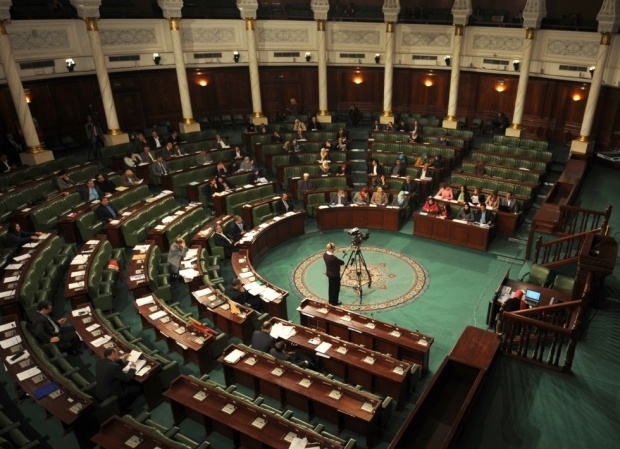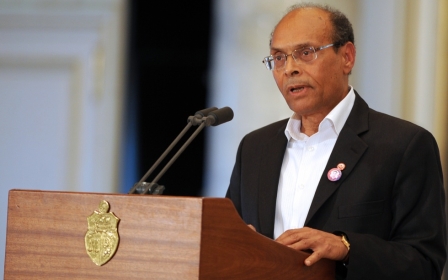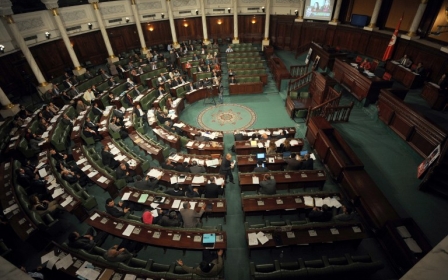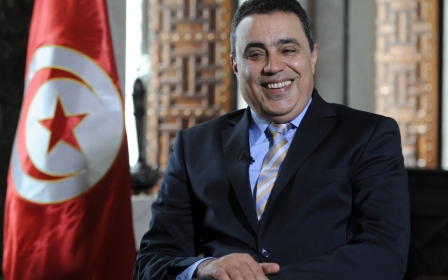Tunisia adopts law for 2014 elections

Tunisia's interim parliament on Thursday approved a new electoral law to govern legislative and presidential polls due to be held by the end of 2014.
Three years after the country's revolution, the law was passed by 132 votes in favour, 11 against and nine abstentions in the 217-member National Constituent Assembly.
The assembly, which started voting on the law article by article last Friday, had initially set itself an April 27 target to wind up the often rowdy debate.
A major bone of contention that led to insults being traded was over a proposed ban on officials of the ousted regime from standing for office, a proposal which was rejected by a single vote.
The proposed ban, clause 168, had the backing of 100 MPs.
New MEE newsletter: Jerusalem Dispatch
Sign up to get the latest insights and analysis on Israel-Palestine, alongside Turkey Unpacked and other MEE newsletters
One of the final clauses adopted was a clause imposing male-female parity in party lists.
The planned elections aim to create permanent institutions in the country that in 2011 spawned the Arab Spring but which remains plagued by prolonged political crises, social conflict and a rise of jihadist groups.
The body responsible for organising the elections still has no budget, no office and no legislation on which to base its work.
It has said it would need between six and eight months to organise elections once the law was passed.
The constitution allows for a dual executive system, with the prime minister exercising the pivotal role but accountable to parliament.
Tunisian President Moncef Marzouki had expressed strong opposition to postponing parliamentary elections, dismissing such proposals as "unacceptable."
"If I had a magic wand, I would hold the election tomorrow," Marzouki told Anadolu Agency in an exclusive interview.
He said Tunisia's national interest lay in holding elections as soon as possible.
Marzouki added that Tunisia's new constitution made it necessary for elections to be held before the end of 2014.
Prime Minister Mehdi Jomaa told AFP in interview with AFP last week that he was determined to proceed with elections this year but that they could still be delayed by organisational problems.
"We must believe it because it was a commitment that is very clear today -- to help organise and create a climate conducive to holding elections before the end of the year," Jomaa said.
"However, the schedule is very tight."
Jomaa said "there is always a risk of having to postpone the elections, and the longer the delay the greater the risk. It's a question of managing the planning."
He ruled himself out as a candidate when the legislative and presidential elections do take place.
His administration's main task is to organise elections to provide Tunisia with the sustainable institutions it has been deprived since the January 2011 revolution that overthrew dictator Zine El Abidine Ben Ali.
Middle East Eye delivers independent and unrivalled coverage and analysis of the Middle East, North Africa and beyond. To learn more about republishing this content and the associated fees, please fill out this form. More about MEE can be found here.




